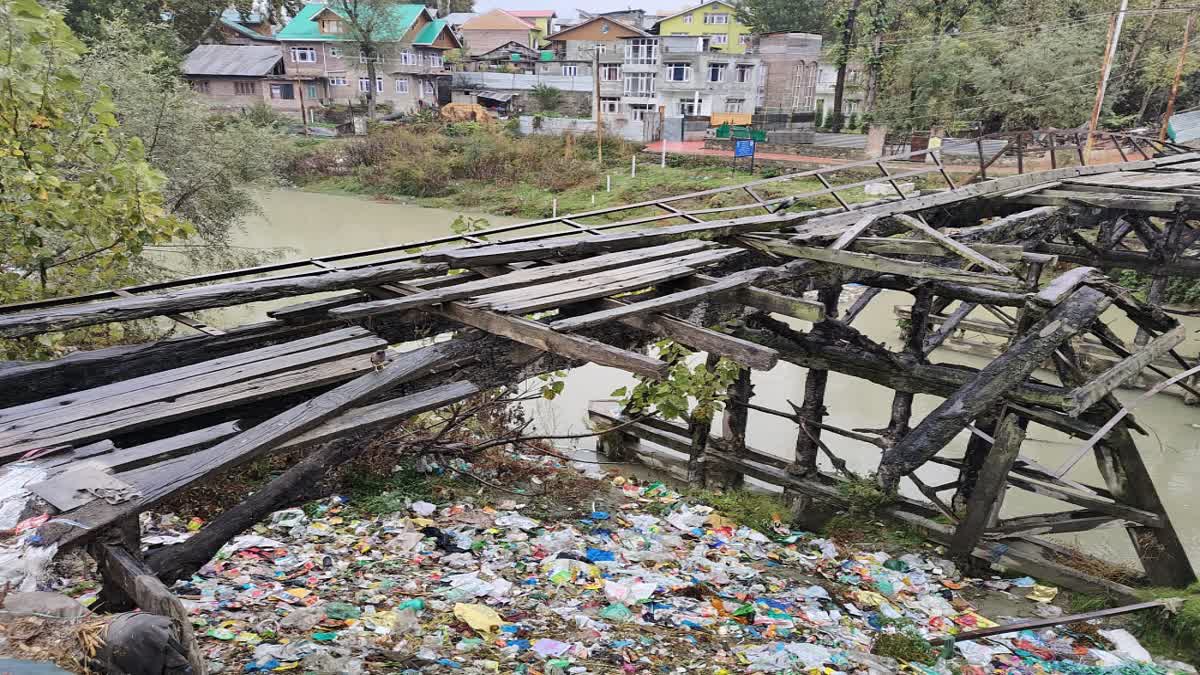Srinagar: A top bureaucrat is among four officials against whom complaints have been filed for their alleged failure to prevent untreated sewage from entering the Doodhganga River in Kashmir, causing environmental damages in crores.
The Jammu and Kashmir Pollution Control Committee (JKPCC) has invoked Section 15 of the Environment (Protection) Act, 1986, against the officers for their negligence in controlling the discharge of untreated sewage and solid waste into the water body. The law allows action against officers with imprisonment for a term that may extend to five years or with a fine that may extend to Rs one lakh or both.
The officers include Indian Administrative Service (IAS) officer Athar Aamir Khan, who was the Commissioner of Srinagar Municipal Corporation until January 2024 and is now Deputy Commissioner of Kulgam. Other officers include former chief engineer J&K UEED, Executive Officer Municipal Committee Chadoora Mohammad Iqbal Bhat currently posted in Shopian civic body and former Executive Officer Municipal Committee Budgam and now Executive Officer Sumbal Committee Syed Nayeem Rizvi.
Citing the technical advisory panel’s assessment, the four complaints filed by secretary JKPCC Ghansham Singh to the J&K Adjudicating Officer show that the violation of the solid waste management rules 2016 has resulted in crores of damages. Each officer has committed damages to crores, with former SMC Commissioner Athar Amir Khan accused of tentative damages worth a staggering above Rs 41 crore.
The action follows a directive from the National Green Tribunal (NGT) last year, ordering authorities to act against officers responsible for environmental violations following the Supreme Court directive in 2017. The top court, in a series of directions, ordered initiating civil or criminal action against the defaulters for their failure to set up Sewage Treatment Plants (STPs) and recover compensation for damages to the environment.
The JKPCC revealed in its compliance report to the NGT on February 3 that no STPs were set up along the river, leading to unchecked discharge of waste into the water body.
Initially, the Srinagar civic body had planned to construct seven STPs alongside the stream but later claimed they lacked expertise in sewage management and transferred it to UEED. But the UEED too failed to act swiftly with the tendering process in its initial stages.
The STPs are believed to prevent untreated wastewater from discharging on the outskirts of the city from seven wards falling under the SMC.
In 2021, NGT in the plea filed by environmental activist Raja Muzaffar Bhat set up a five-member panel comprising the Central Pollution Control Board, JKPCC, Deputy Commissioners of Srinagar, Budgam, and Director Urban Local Bodies. They found large heaps of solid waste alongside the banks of the stream, with Budgam Civic Body using the site previously as a dumping site for biodegradable and non-biodegradable waste in an unscientific manner. This prompted the NGT to seek against the defaulting officers following the Supreme Court.
The committee, as per the SMC, submitted that 10 dewatering stations along the river discharge about 12.4 MLD of wastewater directly into Doodganga daily, recommending setting up sewage treatment plans in seven wards.
Read More



